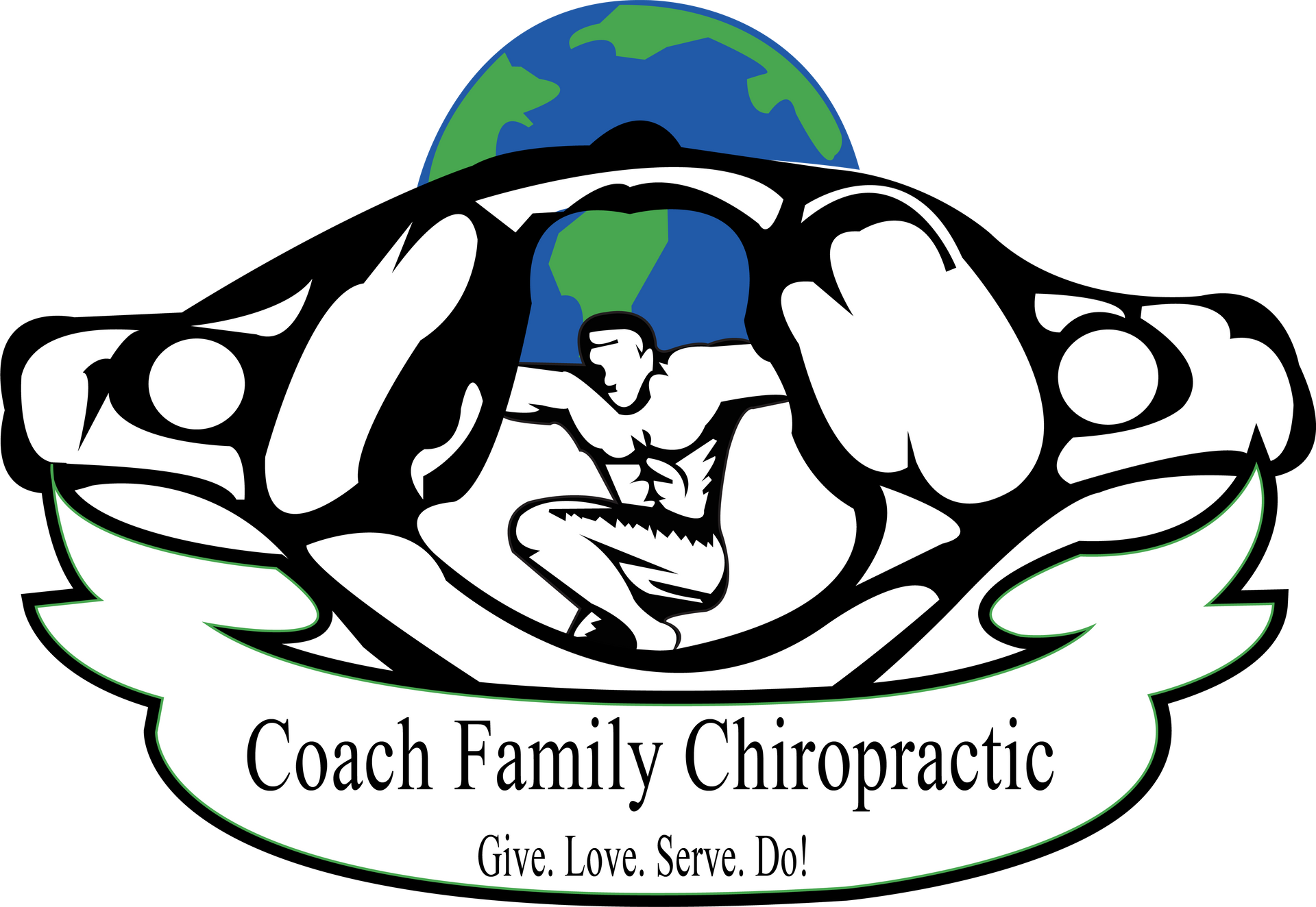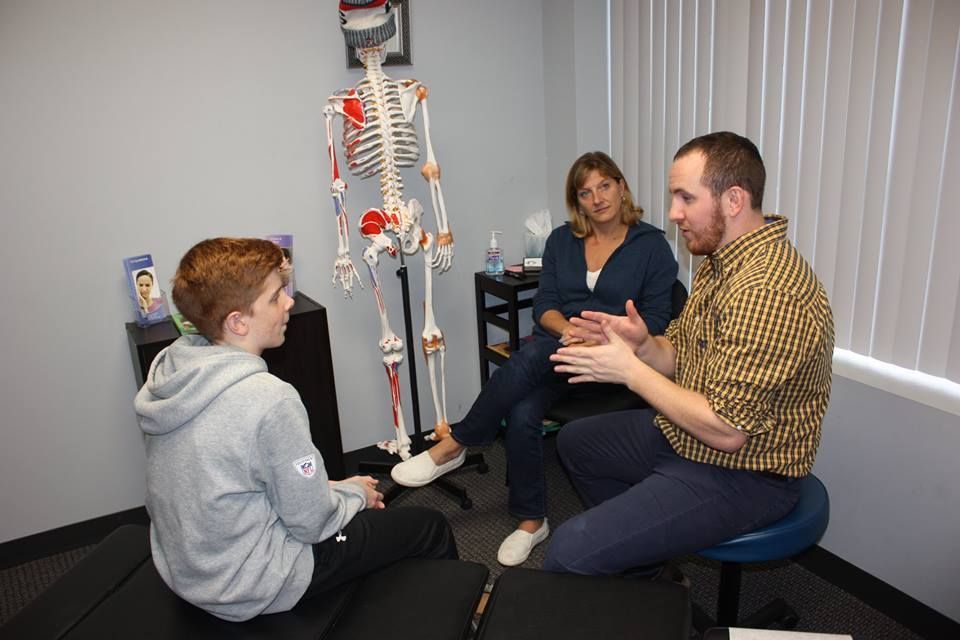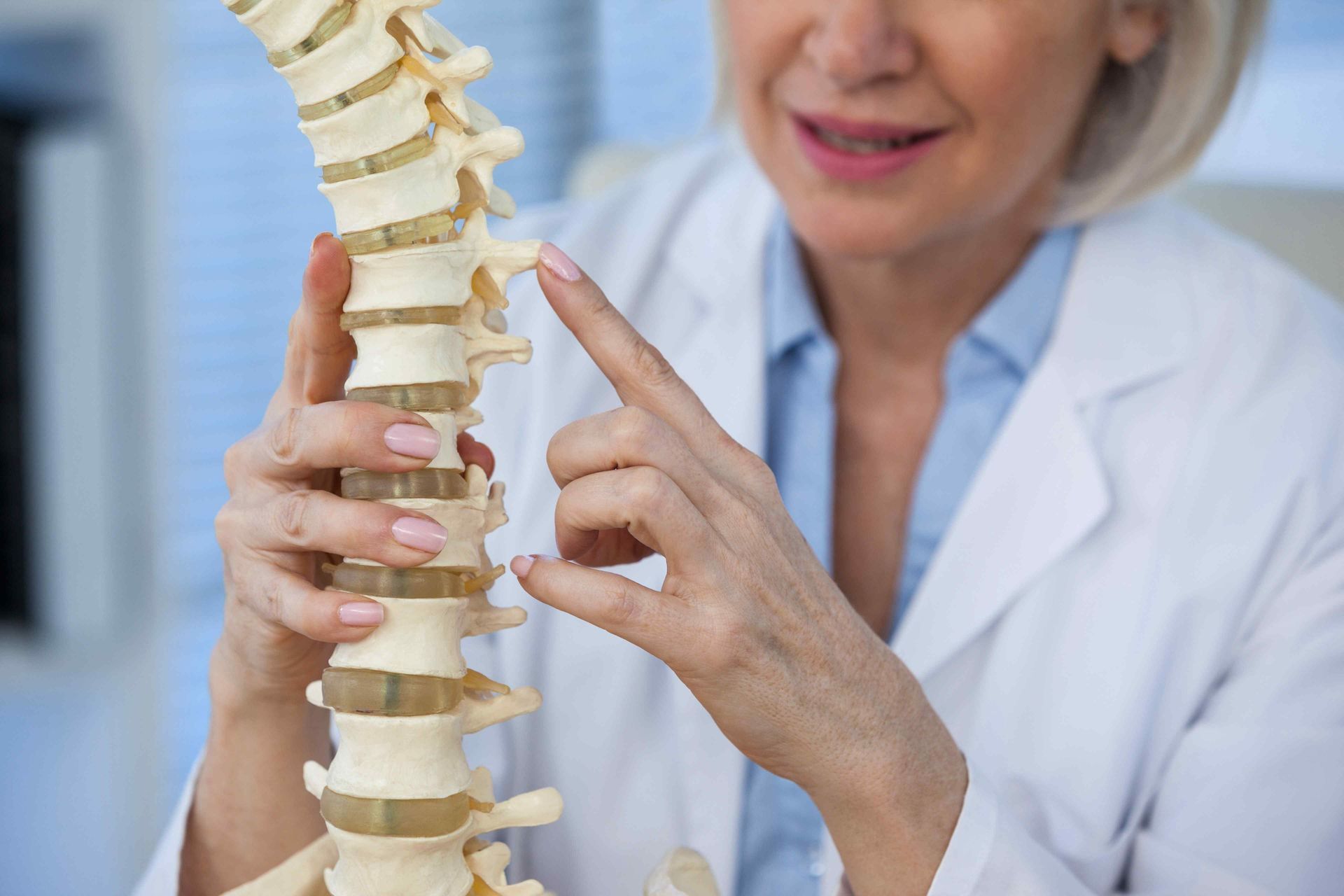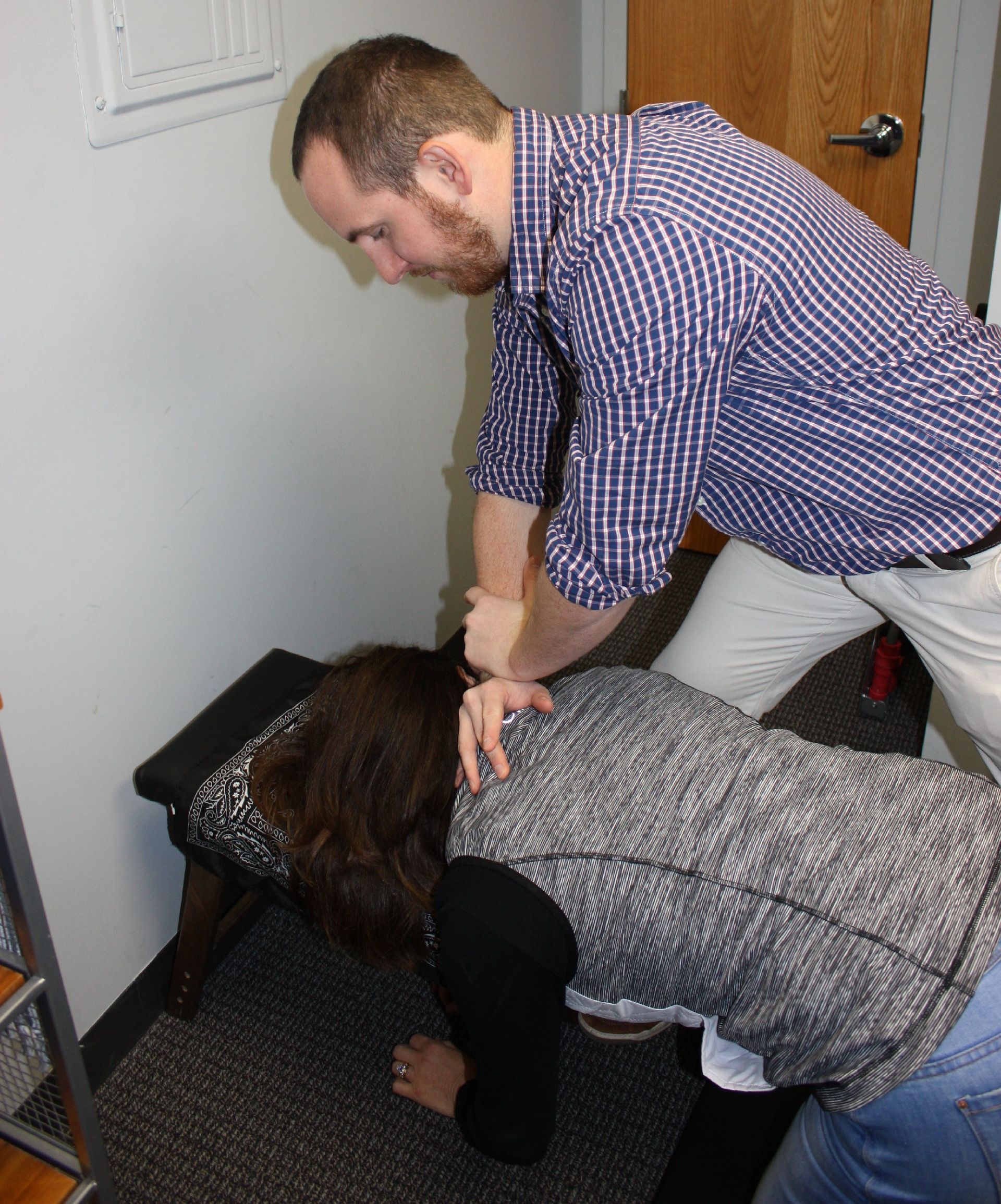How Does Chiropractic Care Relieve TMJ Pain?
By: Sean Bryan DC
How Chiropractic Relieves TMJ Pain
Did you know that over 10 million Americans suffer from temporomandibular joint disorder (TMJ)? Jaw pain, difficulty chewing, and headaches are just a few of the debilitating symptoms that TMJ can cause. If you're one of the many individuals in Dedham, MA, seeking relief from TMJ pain, you'll be glad to know that chiropractic care offers a non-invasive and natural solution. Let's explore how chiropractic treatment can effectively alleviate TMJ symptoms and improve joint function.
Key Takeaways:
- Over 10 million Americans experience TMJ pain, a debilitating condition that affects jaw function and everyday activities.
- Chiropractic care provides a non-invasive and natural approach to alleviating TMJ symptoms, such as jaw pain and difficulty chewing.
- By focusing on the musculoskeletal system, chiropractic techniques can improve joint alignment, reduce inflammation, and relieve TMJ discomfort.
- Complementary therapies, including ultrasound and therapeutic exercises, can enhance the effectiveness of chiropractic treatment for TMJ relief.
- Lifestyle modifications, such as stress management and dietary changes, can complement chiropractic care and support long-term TMJ symptom improvement.
Understanding TMJ and its Causes
Before diving into chiropractic solutions for temporomandibular joint disorder relief, it is crucial to have a clear understanding of TMJ and its causes. TMJ, or temporomandibular joint disorder, refers to a condition that affects the joint connecting the jaw to the skull. This complex joint can experience dysfunction or misalignment, leading to various debilitating symptoms.
Individuals suffering from TMJ may experience a range of symptoms, including:
- Jaw pain or discomfort
- Difficulty in opening or closing the mouth
- Clicking or popping sounds when moving the jaw
- Headaches or migraines
- Earaches
The causes of TMJ can vary, and it is often a combination of factors. Common triggers for TMJ include:
- Stress and anxiety
- Teeth grinding or clenching (bruxism)
- Jaw injuries or trauma
- Misalignment of the jaw or bite
- Arthritis
It is important to consult a specialized TMJ specialist in Dedham, MA, for an accurate diagnosis and personalized treatment options. A knowledgeable professional can identify the underlying causes of TMJ and develop a comprehensive treatment plan to provide jaw discomfort relief and improve overall quality of life.
The Role of Chiropractic Care in TMJ Pain Relief
Chiropractic care offers a holistic approach to alleviating TMJ pain and improving joint function. By focusing on the musculoskeletal system, chiropractors can effectively address TMJ symptoms and provide relief. Through a combination of chiropractic techniques and therapy options, individuals suffering from TMJ in Dedham, MA, can find lasting relief.
Chiropractic Techniques for TMJ Pain Relief
Chiropractors employ various techniques to alleviate TMJ symptoms and promote healing. Spinal adjustments, one of the core chiropractic treatments, can help realign the spine and improve overall musculoskeletal function. By adjusting the spine, chiropractors can alleviate tension and stress in the jaw, reducing TMJ symptoms.
Soft tissue manipulation is another technique utilized by chiropractors to relieve TMJ pain. By targeting the muscles, ligaments, and tendons surrounding the jaw joint, chiropractors can help reduce inflammation and restore proper function.
In addition to manual adjustments, chiropractors may recommend rehabilitative exercises to strength
en the jaw muscles and improve mobility. These exercises can help restore proper jaw alignment and reduce TMJ symptoms over time.
The Benefits of Chiropractic Care for TMJ Patients
Seeking chiropractic treatment for TMJ in Dedham, MA, offers numerous benefits for patients. Chiropractic care is non-invasive and drug-free, providing a natural alternative for individuals seeking TMJ pain relief. By addressing the underlying causes of TMJ, chiropractors can provide long-term solutions, rather than just temporary symptom management.
Chiropractic care also takes a holistic approach to treatment, considering the interconnectedness of the body. By addressing the musculoskeletal system as a whole, chiropractors can help improve overall posture and alignment, providing additional relief for TMJ patients.
TMJ Therapy Options
When it comes to TMJ therapy, chiropractors offer a range of options tailored to each patient's specific needs. In addition to spinal adjustments and soft tissue manipulation, chiropractors may utilize other therapies such as ultrasound, electrical stimulation, and therapeutic exercises. These additional treatments can further enhance TMJ pain relief and promote healing.
Chiropractors may also provide guidance on self-care techniques that patients can practice at home to manage TMJ symptoms. These may include jaw exercises, relaxation techniques, and lifestyle modifications that can help alleviate discomfort and support the effectiveness of chiropractic care.
If you are seeking TMJ treatment in Dedham, MA, chiropractic care offers effective, non-invasive options for pain relief and improved jaw function. By addressing the root causes of TMJ and utilizing various therapeutic approaches, chiropractors can help you find long-term relief from TMJ symptoms.
Chiropractic Techniques for TMJ Pain Relief
In the realm of chiropractic care, various specific techniques are employed to provide effective jaw pain relief for those suffering from temporomandibular joint disorder (TMJ). These techniques aim to improve joint alignment, reduce inflammation, and ultimately alleviate TMJ pain. Let's explore some of the most common chiropractic techniques utilized for TMJ pain relief:
1. Adjustments to the Jaw, Neck, and Spine
Jaw misalignment and tension in the neck and spine can contribute to TMJ pain. Chiropractic adjustments target these areas, gently manipulating and realigning the joints to restore balance and alleviate discomfort. By improving the alignment of the jaw, neck, and spine, these adjustments can provide substantial relief for individuals suffering from TMJ.
2. Complementary Therapies
In addition to adjustments, chiropractors may incorporate complementary therapies to enhance TMJ pain relief. These therapies can include:
- Ultrasound: Ultrasound therapy utilizes sound waves to promote healing and reduce inflammation in the affected TMJ area.
- Electric Stimulation: Electric stimulation therapy involves the use of low-level electrical currents to stimulate the muscles around the TMJ, helping to relax the area and provide pain relief.
- Therapeutic Exercises: Chiropractors may recommend specific exercises to help strengthen the muscles surrounding the TMJ, improving joint stability and reducing pain.
By combining these complementary therapies with chiropractic adjustments, patients can experience enhanced TMJ pain relief and a faster recovery process.
In conclusion, chiropractic techniques have proven to be effective in providing jaw pain treatment and relieving the symptoms of TMJ. Through adjustments to the jaw, neck, and spine, as well as the incorporation of complementary therapies, chiropractors can help improve joint alignment, reduce inflammation, and alleviate TMJ pain. If you are seeking effective and non-invasive TMJ pain relief, chiropractic care may be a suitable option for you.
Lifestyle Modifications for TMJ Relief
In conjunction with chiropractic care, certain lifestyle modifications can significantly contribute to TMJ pain relief. Implementing these changes at home can help manage TMJ discomfort and support long-term symptom improvement. Here are some practical tips and recommendations:
- Dietary adjustments: Incorporate foods that promote jaw and joint health, such as those rich in omega-3 fatty acids (like salmon and flaxseeds), antioxidants (like berries and leafy greens), and calcium (found in dairy products and leafy greens). Avoid hard and chewy foods that can strain the temporomandibular joint (TMJ).
- Stress management techniques: Stress can exacerbate TMJ symptoms. Try stress-reducing techniques like deep breathing exercises, mindfulness meditation, and regular physical activity. Engaging in activities that bring joy and relaxation can also help alleviate jaw discomfort.
- Jaw exercises: Perform gentle jaw-strengthening exercises recommended by your chiropractor or TMJ specialist. These exercises can help improve jaw muscle strength, flexibility, and joint function.
- Oral habits: Avoid habits that put unnecessary strain on your jaw, such as biting nails, chewing on pens, or clenching your teeth. Consider using a nightguard or splint recommended by your dentist or chiropractor to reduce jaw tension while sleeping or during periods of stress.
By making these lifestyle modifications, you can enhance the effectiveness of chiropractic care and support the long-term relief of jaw discomfort. Remember, consistency and personalized care are key factors in finding TMJ pain relief that works for you.
The Benefits of Chiropractic Care for TMJ Patients
Chiropractic care offers several benefits to individuals suffering from TMJ pain. If you're seeking TMJ pain relief in Dedham, MA, chiropractic treatment can be an effective and non-invasive option. Here are some of the key advantages of chiropractic care for TMJ patients:
- Improved Jaw Function: Chiropractic techniques focus on improving the alignment and mobility of the jaw joint, known as the temporomandibular joint (TMJ). Through spinal adjustments and targeted manipulations, chiropractors can help restore proper joint function, reducing muscle tension and promoting better jaw movement.
- Reduced Pain and Discomfort: TMJ pain can be excruciating and significantly impact your quality of life. Chiropractic care aims to alleviate pain and discomfort associated with TMJ by addressing the underlying causes. By relieving pressure on the joint and reducing inflammation, chiropractic treatments can provide much-needed relief.
- Enhanced Range of Motion: TMJ pain often restricts jaw movement, making it difficult to perform simple tasks like eating and speaking. Chiropractic care can help restore a full range of motion to the jaw joint, allowing you to move your mouth more freely and without pain.
- Better Quality of Life: TMJ pain can have a significant impact on your daily activities and overall well-being. By effectively managing TMJ symptoms, chiropractic care can improve your quality of life, allowing you to eat, speak, and sleep comfortably again.
One of the key advantages of chiropractic care for TMJ patients is its non-invasive nature. Unlike surgical interventions or medications with potential side effects, chiropractic treatments focus on natural and holistic approaches to promote healing and pain relief. This makes it an attractive option for those seeking effective TMJ treatment in Dedham, MA.
Consulting a reputable chiropractor who specializes in TMJ treatment is essential to ensure you receive personalized care tailored to your specific needs. By addressing the root causes of your TMJ pain and providing targeted chiropractic interventions, a dedicated TMJ specialist can help you find long-lasting relief and improve your overall oral health.
Choosing a Chiropractor for TMJ Treatment in Dedham, MA
When seeking chiropractic care for TMJ, it is crucial to find a qualified and experienced specialist who specializes in TMJ treatment. The right Dedham TMJ specialist can make a significant difference in the effectiveness of your treatment and overall recovery.
Factors to Consider
When selecting a chiropractor for TMJ treatment in Dedham, MA, consider the following factors:
- Experience: Look for a chiropractor who has extensive experience in treating TMJ patients. Experience equips them with the knowledge and skills necessary to address unique TMJ symptoms effectively.
- Specialization: Ensure that the chiropractor you choose specializes in TMJ treatment. Specialization indicates their in-depth understanding of TMJ disorders and the most appropriate treatment techniques.
- Referrals: Seek recommendations from trusted sources, such as friends, family, or healthcare professionals, who have had positive experiences with a chiropractor for TMJ treatment in Dedham, MA.
- Reviews: Read online reviews and testimonials from previous patients to gauge the chiropractor's reputation and quality of care provided. Positive reviews and feedback are indicators of a reputable specialist.
Credentials to Look For
When evaluating chiropractors for TMJ treatment, consider the following credentials:
- Licensure: Ensure that the chiropractor is licensed to practice in Dedham, MA. Licensing ensures that they have met the necessary requirements and adhere to professional standards.
- Advanced Training: Look for a chiropractor who has pursued advanced training in TMJ disorders or has certifications demonstrating additional expertise in this specific area of practice.
- Continuing Education: A chiropractor who regularly participates in continuing education courses demonstrates their commitment to staying updated with the latest advancements and treatment techniques for TMJ disorders.
Patient Testimonials
Reading testimonials from former patients can provide valuable insights into the quality of care provided by a Dedham TMJ specialist. Testimonials can shed light on the chiropractor's expertise, communication skills, and ability to deliver effective TMJ treatment.
By considering these factors, evaluating credentials, and reviewing patient testimonials, you can make an informed decision when choosing a chiropractor for TMJ treatment in Dedham, MA. Remember that finding the right specialist can greatly enhance your TMJ treatment journey and improve your overall well-being.
Conclusion
In conclusion, if you are looking for effective jaw pain relief and TMJ pain relief in Dedham, MA, chiropractic care provides a valuable and natural solution. By addressing the root causes of TMJ and utilizing specialized chiropractic techniques, patients can experience significant improvement in jaw function and relief from pain and discomfort.
Chiropractic care offers a non-invasive and holistic approach to TMJ treatment, focusing on the musculoskeletal system to restore proper alignment and mobility in the jaw joint. Through spinal adjustments, soft tissue manipulation, and therapeutic exercises, chiropractors can alleviate TMJ symptoms and promote long-term healing.
For personalized and tailored TMJ treatment options, it is essential to consult a dedicated Dedham TMJ specialist. They can provide an accurate diagnosis and develop a comprehensive treatment plan based on your specific needs and condition.
If you are suffering from TMJ symptoms, do not hesitate to seek chiropractic care from a qualified Dedham TMJ specialist. Take the first step towards effective jaw pain relief and improved quality of life today.
FAQ
How does chiropractic relieve TMJ pain?
Chiropractic care can effectively relieve TMJ pain by addressing the underlying causes of the condition. Chiropractors use techniques such as spinal adjustments, soft tissue manipulation, and rehabilitative exercises to improve joint function and reduce inflammation, providing significant relief from jaw pain and discomfort.
What is TMJ and what are its causes?
TMJ, or temporomandibular joint disorder, is a condition that affects the jaw joint and surrounding muscles. It can cause symptoms such as jaw pain, facial pain, headaches, and difficulty chewing. Common causes of TMJ include jaw misalignment, teeth grinding, stress, and arthritis. Consulting a specialized TMJ specialist is crucial for accurate diagnosis and personalized treatment options.
What is the role of chiropractic care in TMJ pain relief?
Chiropractic care plays a significant role in relieving TMJ pain by focusing on the musculoskeletal system. Chiropractors use various techniques to improve joint alignment, reduce inflammation, and alleviate TMJ symptoms. By addressing the root cause of the condition, chiropractic treatment offers a non-invasive and natural approach to TMJ pain relief.
What chiropractic techniques are used for TMJ pain relief?
Chiropractors use specific techniques for TMJ pain relief, including adjustments to the jaw, neck, and spine. These adjustments improve joint alignment, reduce inflammation, and alleviate pain. Complementary therapies such as ultrasound, electric stimulation, and therapeutic exercises may also be used to enhance TMJ pain relief.
Are there lifestyle modifications that can help with TMJ relief?
Yes, in addition to chiropractic care, certain lifestyle modifications can significantly contribute to TMJ pain relief. These may include dietary changes to reduce inflammation, stress management techniques, and practices to improve overall oral health. These non-invasive methods can complement chiropractic treatments and support long-term TMJ symptom improvement.
What are the benefits of chiropractic care for TMJ patients?
Chiropractic care offers several benefits to individuals suffering from TMJ pain. It can lead to improved jaw function, reduced pain and discomfort, enhanced range of motion, and an overall better quality of life. Chiropractic treatment is non-invasive, making it an attractive option for those seeking effective TMJ relief in Dedham, MA.
How do I choose a chiropractor for TMJ treatment in Dedham, MA?
When selecting a chiropractor for TMJ treatment, it's important to find a qualified and experienced specialist. Look for a chiropractor who specializes in TMJ treatment and has the necessary credentials. Reading patient testimonials and seeking recommendations can also help you make an informed decision when choosing a Dedham TMJ specialist.
Can chiropractic care provide effective jaw pain relief?
Yes, chiropractic care can provide effective relief from jaw pain. By addressing the underlying causes of jaw pain and utilizing specialized chiropractic techniques, chiropractors can significantly alleviate discomfort and improve jaw function. If you are experiencing jaw pain, consider consulting a Dedham TMJ specialist for personalized treatment options and effective relief.
Ready To Start Feeling Better?
Book a Consult/Exam with Coach Family Chiropractic today. Let's work together to get you on the road to feeling great!
Navigation
Working hours
- Mon, Wed
- -
- Tue, Thu
- -
- Friday
- -
- Sat - Sun
- Closed
Powered by: WebPro.ai




